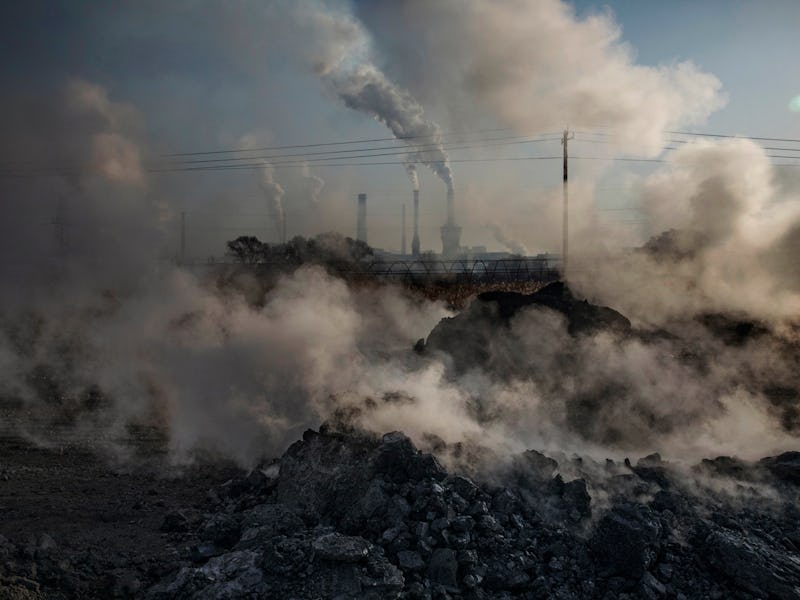What Happens If America Breaks the Paris Agreement?
A withdrawal under President Trump could have far-reaching global consequences.

Back on September 3, 2016, President Barack Obama officially filed to enter the United States into the Paris Agreement to remedy climate and environmental changes to Earth. But during his campaign, soon-to-be-President Donald Trump promised to back the U.S. out of the Agreement. Following through with this promise would certainly have a major impact on environmental progress, along with bringing into question the U.S.’s ability to commit to a global coalition combating something that will affect more than just one nation.
The Agreement, in which participants pledge to “limit global temperature rise to less than 2 degrees Celsius,” will mandate that America, in order to fulfill its role, lower its greenhouse gas emissions by 26 to 28 percent. This would bring emissions down below their 2005 levels. It also represents about 20 percent of the total global promise to reduce emissions.
With that in mind, it’s easy to see why it would be a big deal if Trump nixes the arrangement — it would certainly have a major impact on the domestic environmental and energy policy. Gone would be an impetus to spur investment in clean energies. Taken with Trump’s other environmental plans, or lack thereof, it could result in a near-total stoppage of American progress in moving away from fossil fuels, and finding more environmentally-friendly practices.
But the fallout from pulling out of the deal could extend far beyond the United States. If the nation does so, the mere fact that America is committed to a full one-fifth of global emission reductions as part of the Agreement is bad news for the environment. It throws into jeopardy the chances that those countries still participating in the Agreement will be able to meet the established goal.
And that’s another potential issue: whether or not there will even be an Agreement if the U.S. pulls out. It’s possible that the lack of U.S. involvement could torpedo the entire thing. It would send a message that one of the most influential countries in the world isn’t actually interested in the meaningful pursuit of a solution to climate change. At best, it hurts American diplomatic credibility worldwide. At worst — similarly to Trump’s comments about pulling support for NATO — it calls into question whether President Trump can be trusted to uphold any American commitment to another country. Trump surely has foreign policy goals of his own, ones that will at least in part involve cooperation with other leaders. They may prove loathe to give that cooperation if Trump doesn’t show himself to be diplomatic.
Chris Mooney of The Washington Post expressed similar concerns. He also noted one as-yet-unmentioned outcome that should give Trump serious pause as he weighs abandoning the agreement. Mooney writes that a U.S. departure from the Paris Agreement “could be a boon to its other biggest participant in terms of its emissions — China.” David Sandalow, a fellow at the Center on Global Energy Policy at Columbia University, told The Washington Post that China “would gain credibility globally by sticking with its climate plans even as the U.S. withdraws.” Other countries would no doubt be keener to engage with a major power that keeps its word, rather than one that doesn’t.
For all his talk about standing up to China, Trump may soon find himself with a tough decision to make, one that might strengthen the rising superpower. There are avenues by which Trump can exit the agreement — some more extreme than others — but will he take them? Would he risk strengthening China in order to realize one of his most loudly promised campaign goals? Conventional Trump wisdom, if there can be such a thing, says probably not. Trump has already signaled that disrupting China’s interests, for better or worse, will be central to his presidency. He’s already taken to annoying China by speaking to the Taiwanese president. Pulling out of the Paris Agreement would be tantamount to ceding a large area of international diplomacy to China’s influence. Then again, Trump himself may not fully understand these implications. And he’s shown time and time again that conventional wisdom often doesn’t count for much, these days.